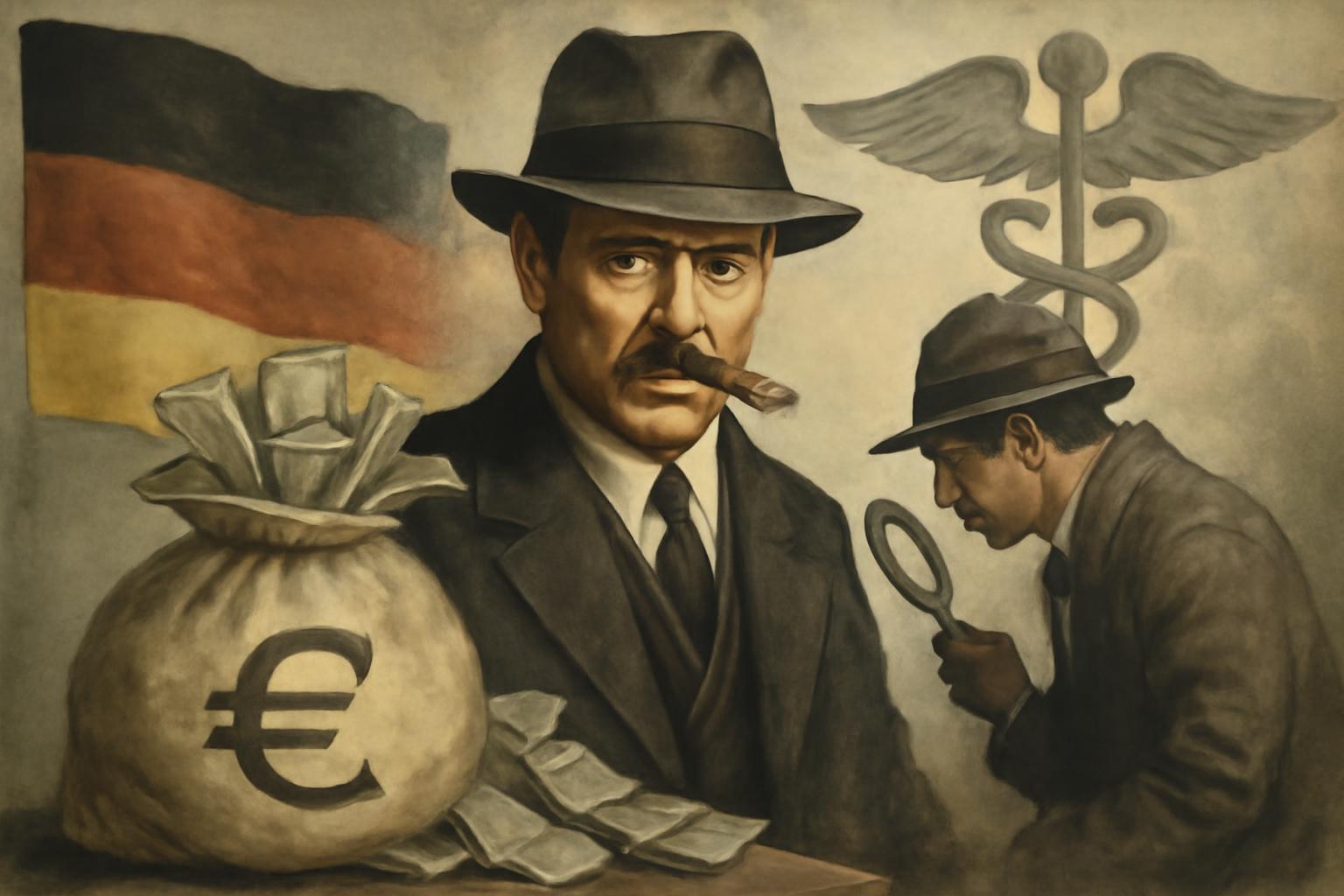Yet again, the German public finds itself clutching its pearls in the face of a barely concealed truth: economic crime is rampant, and the losses—€2.76 billion, if one must stoop to count such pedestrian sums—are mounting with each passing year. A 2.9% increase in one cycle, nearly 62,000 cases. One is almost tempted to believe that some modicum of sophistication has finally permeated the ranks of common offenders. But let us not deceive ourselves—the true spectacle here is the revelation of what the lower echelons are capable of when left just barely unsupervised.
Particularly galling, of course, is the flourishing of healthcare fraud. That sector, supposedly sacred, is now crawling with billing scams conducted by organized gangs—an illustration more grotesque than tragic, really, of how even the most carefully cultivated national systems can be corrupted when left to the devices of individuals with no sense of breeding or duty. It's little wonder: as the population ages and health costs rise—circumstances that naturally do not affect those of us with private clinics and family physicians on personal retainer—the temptation to turn the social safety net into a personal ATM becomes simply irresistible for a certain class of person.
Some might wring their hands over the "harmful trend" or the "vast financial losses." Personally, I find the whole affair utterly predictable. Entrust systems of great value to the chronic underachievers, and watch them gnaw away at the foundations for a few crumpled bills. The notion that organized crime might find easy prey among the bureaucrats and pensioners—who themselves rarely display the necessary vigilance or intelligence to secure their own interests—should come as a surprise to no one.
Of course, the BKA trumpets an 88.9% clearance rate, as if bureaucratic diligence could mask the rot at the core. Let us not be fooled: this "success" is owed as much to the abject cluelessness of those committing the crimes as it is to any particular prowess among investigators. When the bar is set so low, is it any wonder that the police manage to clear a few more cases every year?
At the root lies a fundamental issue that cannot be legislated away: when a society tolerates mediocrity and rewards the ambitions of the small-minded, this is the inevitable result. There is a lesson here, were anyone willing to heed it—a society cannot function by elevating the base, the common, and the unremarkable to positions of trust. The world cries out for standards, for pedigree, for the kind of genteel self-regulation that was once, and should be again, the province of those truly fit to lead. Until such time as society remembers its place, I fear we will simply carry on counting the mounting billions lost to schemes barely clever enough to snare the average civil servant.
